Watch out! Apart from tourists, what else can save the once brilliant authentic Xinglong coffee?
Presumably, there is such an experience when traveling to Xinglong, Hainan:
Xinglong overseas Chinese Farm Coffee Factory is located in a botanical garden. we took us here with a tour guide to visit various tropical plants. The coffee factory exhibition area is very small, and some faded display boards introduce common knowledge such as coffee cultivation and coffee etiquette. Easy to understand.
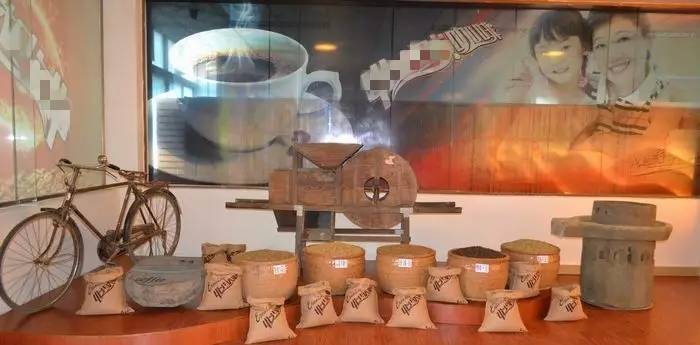
Some different kinds of coffee were planted on both sides of the road, but unfortunately there were no coffee beans on it. Then came the coffee processing plant, where workers were concentrating on making all kinds of food. Finally, after tasting the coffee for free, there is a huge shopping supermarket with seven crutches and eight crutches. If you want to go out, you must walk all the showcases.
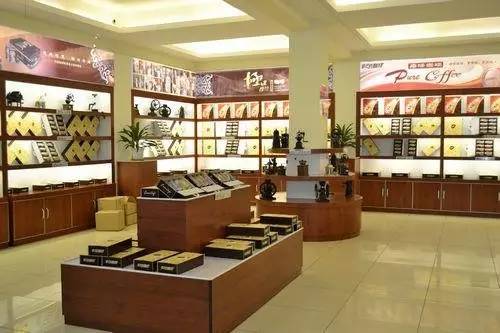
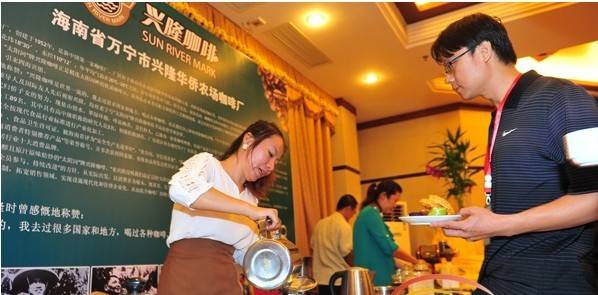
After tasting it, I felt that his milk coffee tasted good. There was a strong smell of milk in the mouth, followed by a bitter taste of coffee, and after swallowing it, there was a slightly bitter taste in the milk flavor, which tasted good, and the price was not expensive. At that time, it was sold for more than 20 yuan a generation.
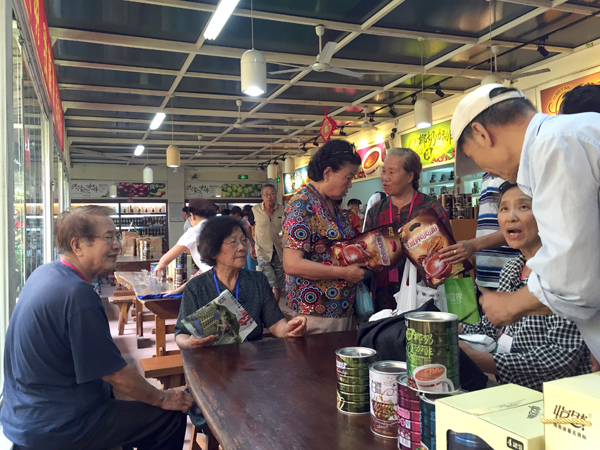
The picture shows tourists buying Xinglong coffee in the mall. Photo taken by Hainan Daily reporter Sun Hui
The result of taking home: you can't drink at all.
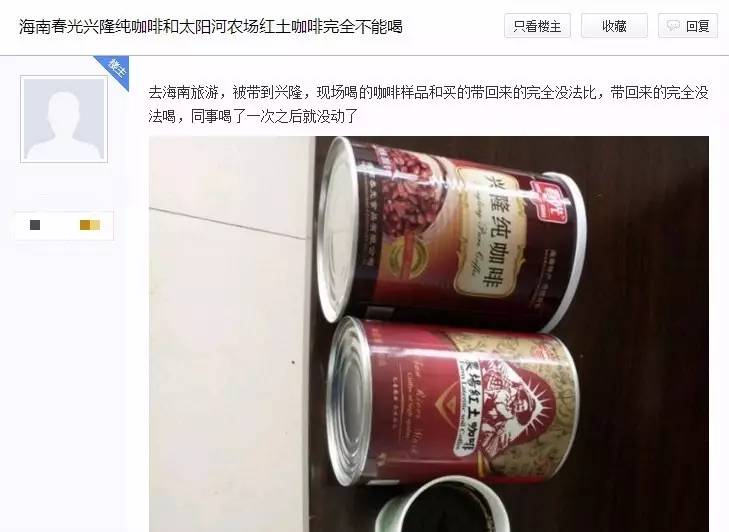
Xinglong Coffee background
This used to be a brand that could break a hole even if it was thrown on the ground.
Premier Zhou made Xinglong Coffee famous: "Xinglong Coffee is world-class. I have drunk a lot of foreign coffee, but our own coffee tastes good." February 7, 1960-the Prime Minister visited Xinglong Farm and was greatly appreciated after drinking Xinglong Coffee.
A cup of coffee with strong flavor, an amiable prime minister, wrote a good name for Xinglong Coffee.
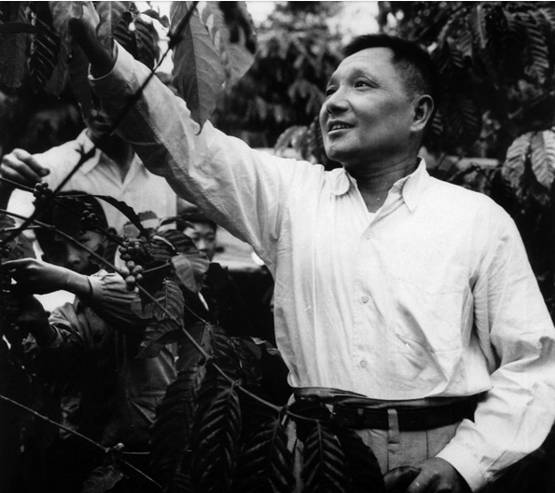
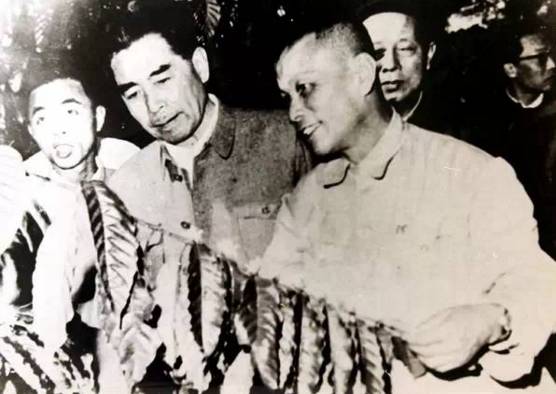
"Xinglong coffee is first-class in the world. I have drunk a lot of foreign coffee, but our own coffee tastes good." February 7, 1960-the Prime Minister visited Xinglong Farm and was greatly appreciated after drinking Xinglong Coffee. A cup of coffee with strong flavor, an amiable prime minister, wrote a good name for Xinglong Coffee.
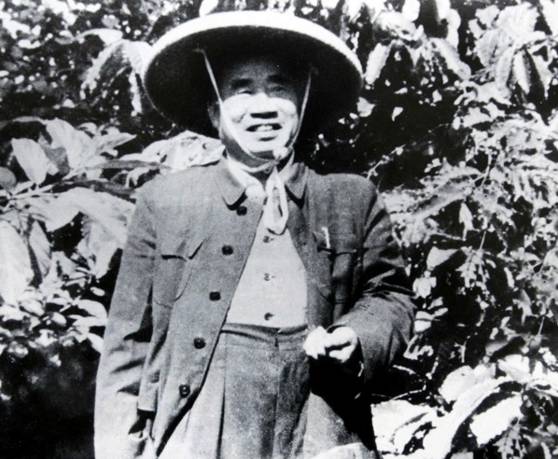
According to reports, Xinglong coffee in its heyday, the planting area of more than 4000 mu, the farm can be seen everywhere coffee gardens. Every household on the farm grows coffee, and coffee income is the mainstay of farmers' income.
Xinglong Coffee settled in Xinglong, Hainan, in 1953, when Xinglong overseas Chinese Farm was just established. In order to realize the practice of "raising growth in the short term", that is, using short-term crop income such as coffee, citronella and rice to make up for long-term crop income such as rubber, Xinglong began to introduce coffee from Chengmai Fushan.
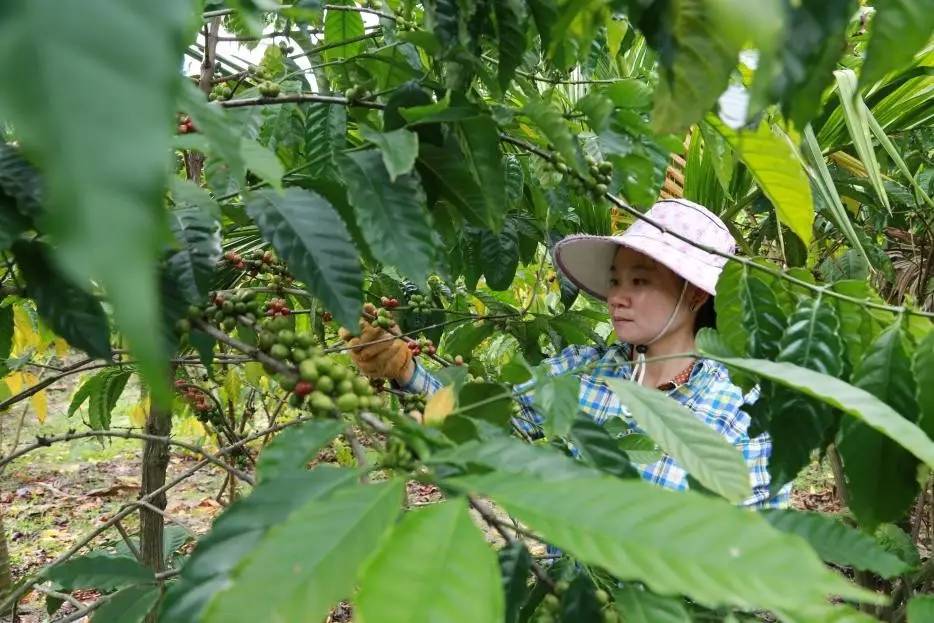
Xinglong Coffee was once the banner product of Hainan local brand. Today, on Xinglong Farm, there is also a stone tablet to commemorate Premier Zhou Enlai's visit to Xinglong Cafe Garden.
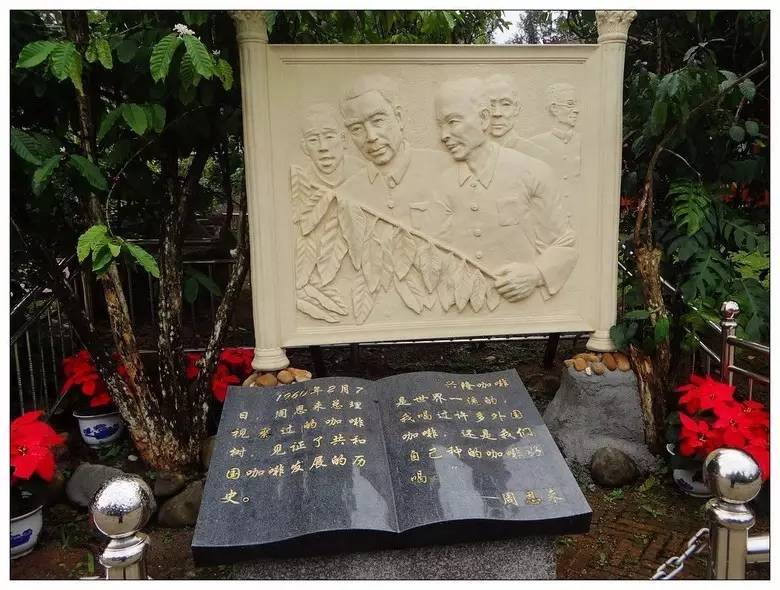
Fifty-five years later, the monument is still erected and the story is still circulating, but the coffee garden has disappeared and has been replaced by a lush rubber forest.
At that time, the planting area of coffee was very large, and the whole Xinglong had more than 3000 mu. In order to ensure the quality of coffee beans, coffee beans are cooked and picked. At that time, the workers were too busy, and the students on the farm often came to the plantation for half a day to pick coffee. After the 1990s, with the continuous decline in the price of coffee beans, the planting area of Xinglong coffee is also decreasing, and the planting area of coffee in Xinglong area is less than one thousand mu.
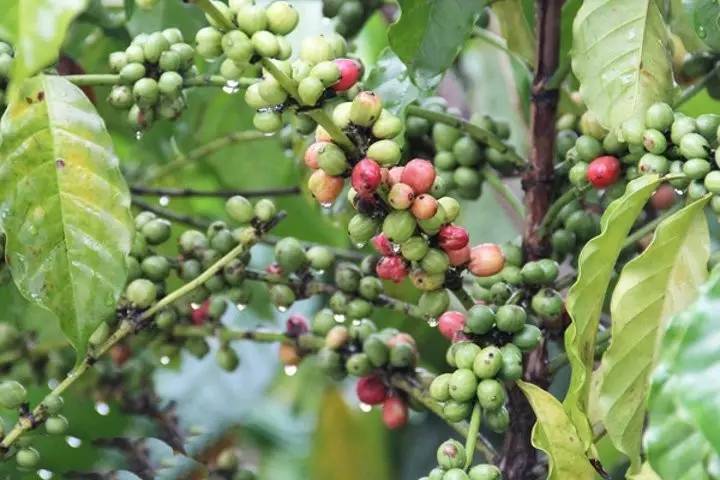
However, today, with the ups and downs of the market, Xinglong Coffee, which was once popular, is facing the market bottleneck of sharp decline in planting area, shrinking production capacity, mixed product quality and weakening brand influence.
In many large supermarkets, we can often see various brands of Xinglong Coffee: Xinglong Mountain Coffee, Xinglong authentic Coffee, Xinglong charcoal roasted Coffee, Xinglong Pure Coffee. Take a closer look at the product introduction, but the origin is Haikou, Qionghai, Wenchang and other places. "strictly speaking, these products are fake Xinglong products, and if the government does not stop them, the brand of Xinglong Coffee will be destroyed sooner or later." Qiu Xiaofeng, president of the Xinglong Coffee Industry Association, said that due to the limited output, the market is many products with Xinglong coffee brands, using foreign coffee beans as raw materials, such products are not as good as authentic Xinglong coffee in terms of taste and quality, but it has affected the reputation of Xinglong coffee. According to the measures for the Management of geographical indications of Xinglong Coffee in Wanning City, Xinglong Coffee refers to Nanqiao, Changfeng, Sangengluo, Liji and other townships produced in and around Xinglong in Wanning City. In December 2007, AQSIQ issued notice No. 209 to protect the geographical indication products of Xinglong Coffee. In August 2015, Wanning Xinglong Coffee Industry Association applied to the State Administration for Industry and Commerce for geographical indication certification trademark of Xinglong Coffee, which has been accepted. At present, the government has not strictly implemented this management method, which is why coffee produced in various places can also be marked Xinglong coffee to be sold on the market. Managers and businessmen are well aware that if strictly implemented, the output of Xingxingyi alone is still 108000 miles away from the "specialty demand" of tourists. According to a 2013 tropical crop forecast by the Hainan Provincial Agriculture Department, Hainan has a coffee planting area of 6000 mu in 2013, and the province is expected to produce 200 tons of coffee beans. However, Hainan will sell at least 6000 tons a year. Due to the huge gap between production and marketing, Wanning City has launched the "implementation Plan for supporting the Development of Xinglong Coffee Industry in Wanning City", hoping to introduce preferential policies from coffee cultivation, subsidizing 2000 yuan / mu for planting in the south of the country, and distributing seedlings free of charge. In spite of this, Huang Haisheng, chairman of a local coffee company, told the Farmers' Daily that the fresh fruit of coffee really produced from Xinglong is no more than 40 tons per year, and then dried into beans is less than 10 tons.
At the two sessions in February this year, Secretary Zhang Meiwen of Wanning City said that Wanning City now has 6000 mu of Xinglong Coffee, striving to expand the planting area of Xinglong Coffee to 10, 000 mu by 2020, and the long-term goal is to expand the planting area of Xinglong Coffee to 50, 000 mu. If the data are true, how can the planting area of Wanning City, which is only equivalent to the area of a small and medium-sized coffee farm in Yunnan, support such a huge market?
The response of the Hainan Provincial Agricultural Department to the third session of the sixth Hainan Provincial Committee of the Chinese people's political Consultative Conference is as follows: products on the market under the banner of "authentic Hainan coffee" are mostly processed from imported coffee beans from Vietnam and Yunnan. Our province imports about 3000 tons of coffee beans from Yunnan every year, and also imports two or three thousand tons of coffee beans from Vietnam, Brazil and other places.
This is the new clothes of the emperor of Xinglong Coffee Industry, and it is also a pain that local coffee manufacturers do not want to mention. For idealists of Xinglong Coffee Brand, it has become more and more distant to regain their fame.
What kind of coffee is Xinglong?
Xinglong is very low above sea level, planting small seed species not only has a low yield, but also does not have a long life span. Finally, they began to plant medium-grain coffee on a large scale as the most suitable variety for prosperous cultivation, and the prosperous altitude, latitude and climate provided a good guarantee for the settlement of medium-grain coffee.
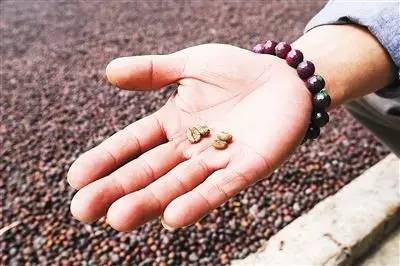
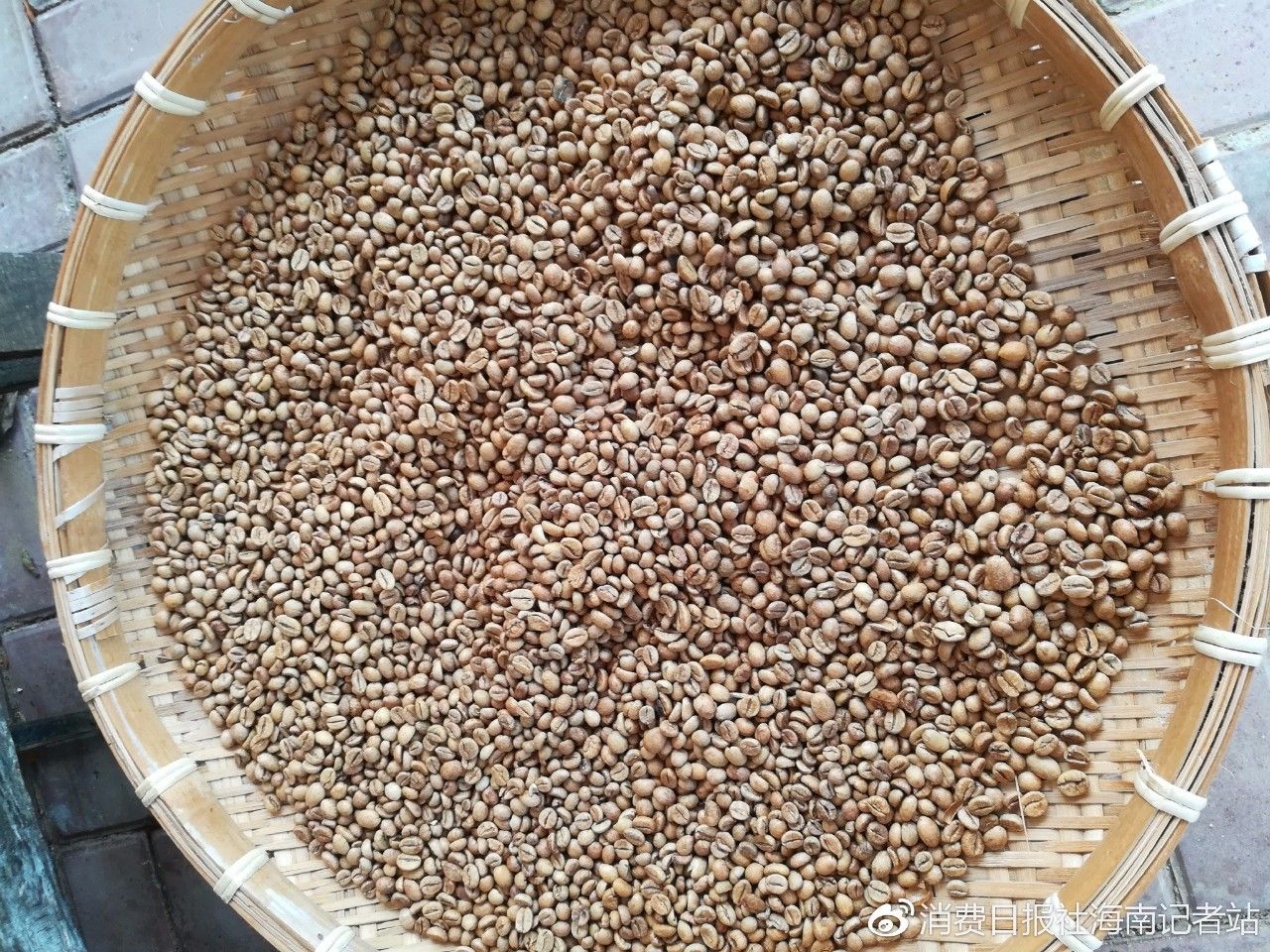
If you look carefully, medium-grain coffee is "Robusta".
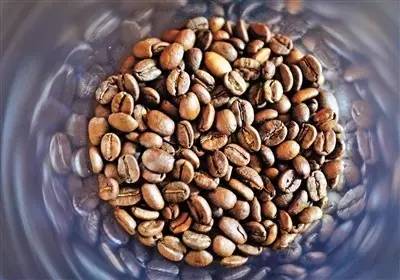
What's the difference between Arabica coffee beans and Robusta coffee beans? It has nothing to do with botany, it has nothing to do with boutique coffee, or even whether we drink a cup of pure Arabica boutique coffee, this is a business-led world.
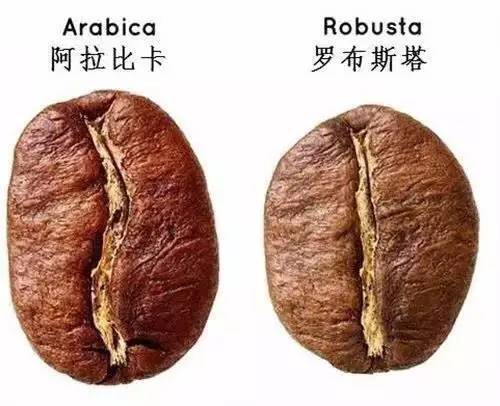
Here is a very important point to share: although we insist that Arabica is almost synonymous with boutique coffee, the industry has sold Robusta to you, whether you like it or not.
And Manning, so far, is the only boutique coffee in the world that justifiably provides Luodou for you to drink, a body very heavy coffee. Yes, Manning varieties have Arabica tin cards, as well as a large number of varieties with Arabica crosses, Luodou hybrids, Lasuna, Kaddura, Katim. Hybrids are common, but hybrids of Luodou are not common in all producing areas.
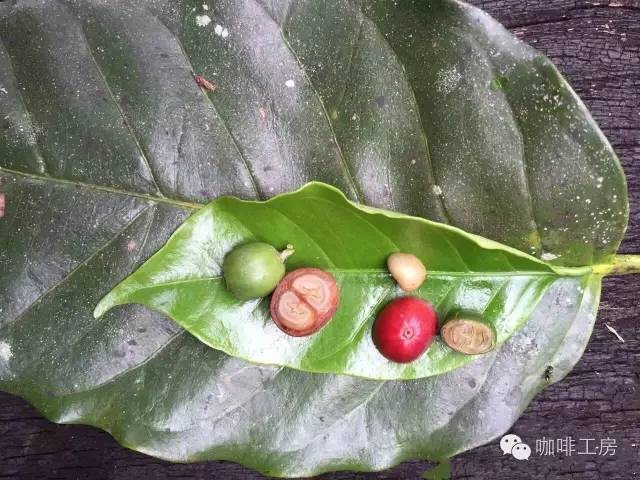
But then again, Robusta is not necessarily bad, see how to process it?
Xinglong coffee adopts the traditional stir-frying method of overseas Chinese.
Xinglong's stir-frying technology adopts the Southeast Asian method. Xinglong's local coffee is most suitable for this method. In the process of stir-frying, it is not only necessary to master the heat, but also timely add sugar, salt and butter. This kind of coffee is particularly fragrant.
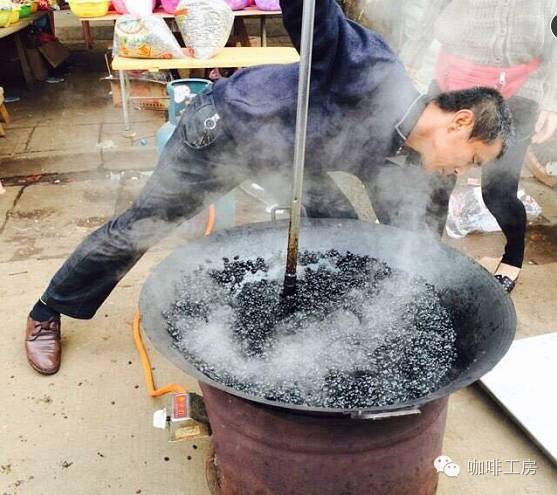
The traditional stir-frying method of overseas Chinese and the deep roasting of coffee beans in Southeast Asia brought back by returned overseas Chinese also give the prosperous coffee flavor a special flavor.
If you go deep into some local families in Xinglong, you may be lucky enough to enjoy one of the most traditional performances of stir-frying coffee beans in an iron pot on the stove, which is constantly stir-fried by a big shovel in the hands of the spoon. Butter, salt and sugar will also be added, and the strong smell will stimulate your nose steaming.
After frying out of the pan, the oil and sugar on the beans make their own black deeper.
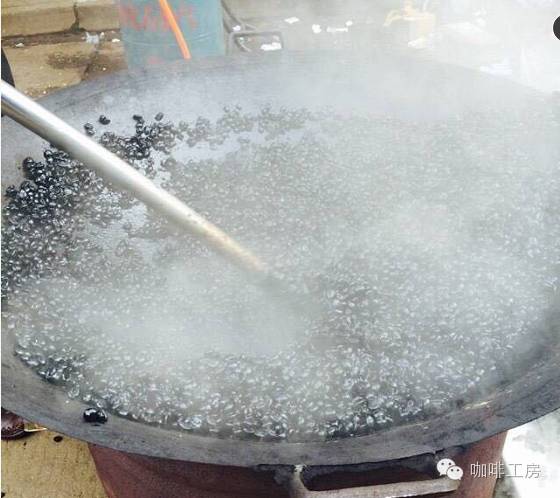
WOW!
The beans are really dark and dark.
It looks so charred (carbon) ~ sugar (burning) ~ ~
[official advertisement]: there are many kinds of charcoal-roasted coffee, mainly two kinds of coffee are made by artificial charcoal roasting technology, but the raw materials are different; charcoal-roasted coffee is Xinglong coffee; Xinglong charcoal-roasted coffee combines the advantages of charcoal-roasted coffee and mountain coffee. Mellow and smooth taste, not only retain the mellow aroma of coffee, but also with a hint of charcoal charcoal smell, the taste is pure, strong, mellow.
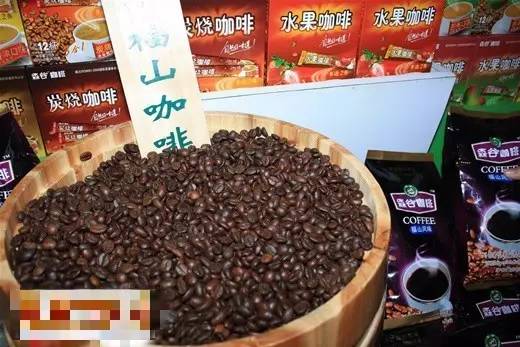
In Xinglong, the average coffee sold by farmers is only ten or twenty yuan per jin.
In the Xinglong coffee factory in the tourist area, the price of "Xinglong boutique coffee beans" is as high as 108 yuan per jin.
However, most Xinglong coffee is sold as instant coffee!
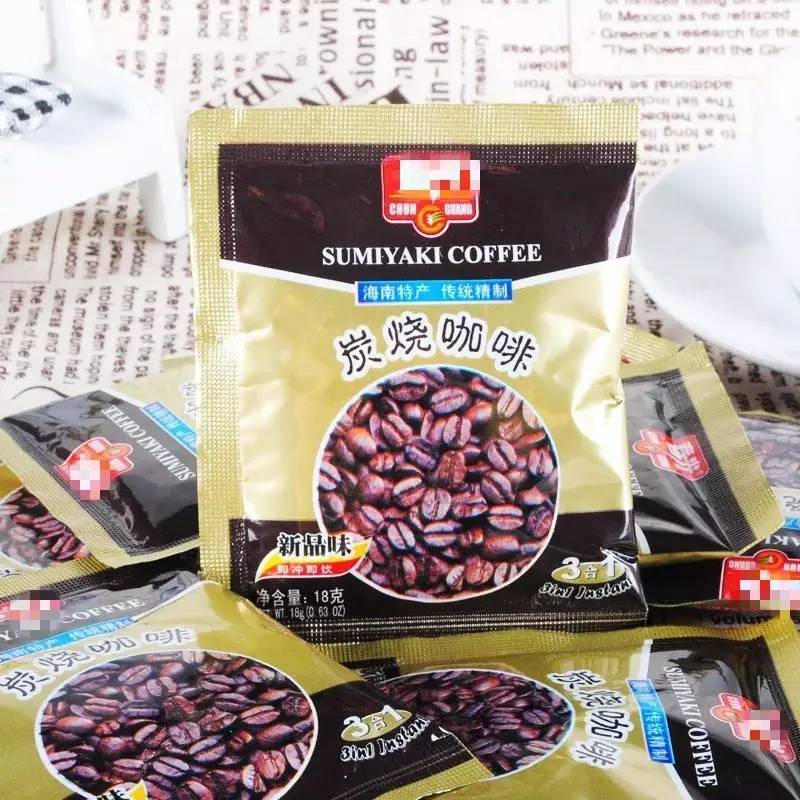
"Xinglong Organic Coffee beans" can sell for up to 800 yuan a pound, comparable to [Rose Summer].
At the gate of the organic coffee farm, there is a demonstration garden for the standardized production of hot crops of the Ministry of Agriculture. Standardization is one of the lessons Zeng Weimao learned from the Fushan coffee brand. In his estate, there are strict process standards for planting management, coffee bean roasting and coffee cooking. "Coffee is a high-quality drink, and the taste must be stable, which requires strict and detailed production standards throughout the production process."
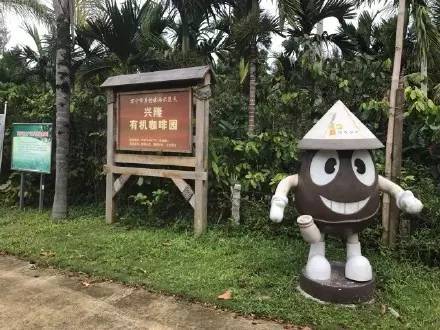
Coffee here from planting, picking to processing, are natural and organic way, using the original physical processing, the original flavor of roasting is very good to retain the unique aroma of coffee, is the boutique of Xinglong coffee. All kinds of coffee beans can be found here.
To grow organic coffee, you need a "big change": send the soil and water quality of the planting site to professional institutions in Beijing for testing to ensure that heavy metals do not exceed the standard and there are no pesticide residues; raise pigs to build biogas digesters and ferment organic fertilizers; equipped with relevant environmental protection equipment; manual weeding. After everything is in place, there will be a three-year conversion period.
When it comes to cultivation, no insecticides and chemicals can be used to treat diseases and insect pests or cultivation problems, but are replaced by solar energy pest control lights and natural composting, hedgerows, pruning and other natural methods. At the same time, it is necessary to plant trees taller than coffee trees, so that coffee can fully grow in the shade, so that it contains more natural ingredients, better taste and less caffeine.
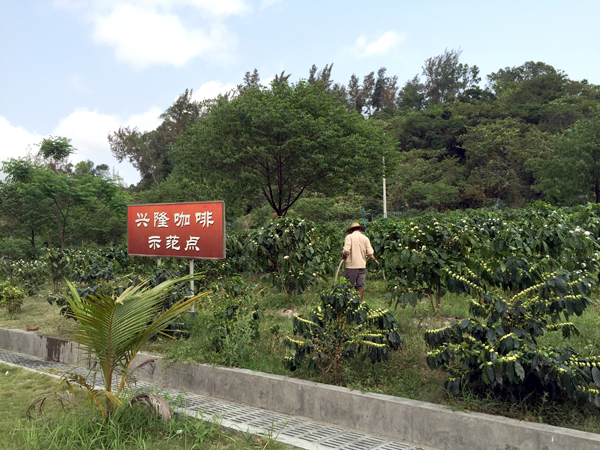
The picture shows the coffee planting demonstration site in Xinglong, Wanning (photo by Sun Hui, reporter of Hainan Daily)
Organic coffee can sell for up to 800 yuan a pound, which is as much as 10 times the price of other coffee on the market. "things are precious when they are scarce." About 4000 beans are needed for a pound of coffee, which is harvested entirely by hand, and each coffee tree produces only about a pound of roasted beans each year.
My understanding is that
Luo Dou can be sold for 800 yuan a pound! Haha ~ ~ but the world is unpredictable, coffee is about to start to drink flavor
Once brilliant Xinglong Coffee! Apart from fooling tourists, what else can save Xinglong Coffee?
Important Notice :
前街咖啡 FrontStreet Coffee has moved to new addredd:
FrontStreet Coffee Address: 315,Donghua East Road,GuangZhou
Tel:020 38364473
- Prev
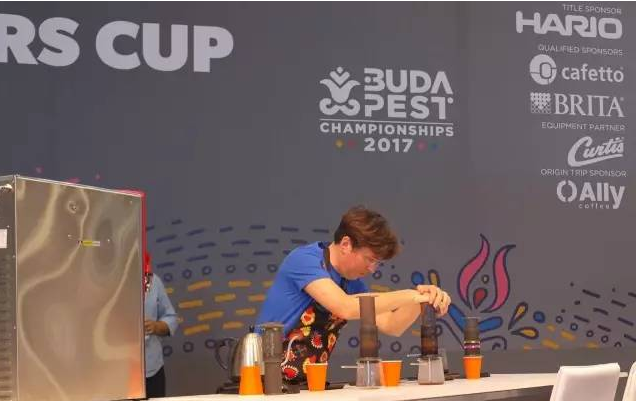
Austrian brewing champion Michael Manhart Austrian brewing champion and his Ugandan coffee
Michael Manhart, a barista from Austria, finished fourth in the 2017 World Coffee Brewing Competition, and his Ugandan coffee and the highest designated brewing score were impressive enough. Surprisingly, Michael is not a full-time barista. He is a coffee lover who is a primary school teacher trainer and has been in contact with him since 2013.
- Next
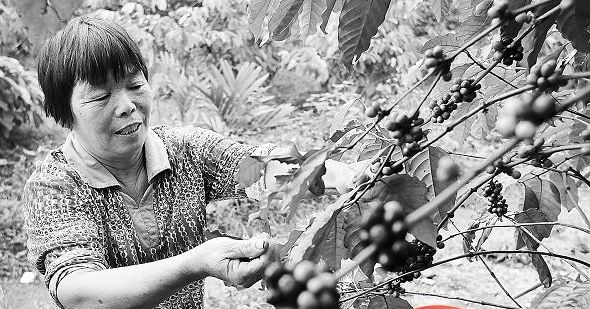
Coffee cold knowledge: Hainan coffee annual output of less than 200 tons, sales reached 6000 tons
Growers at Xinglong Overseas Chinese Farm are checking coffee growth. Reporter Su Xiaojie Photographed by our reporter Kuang Changxun Guo Jiaxuan Special reporter Chen Xunjing Correspondent Wang Zhezhi Fu Ji like a mountain, prosperous prosperity. In the past May Day holiday, Wanning Xing
Related
- Detailed explanation of Jadeite planting Land in Panamanian Jadeite Manor introduction to the grading system of Jadeite competitive bidding, Red bid, Green bid and Rose Summer
- Story of Coffee planting in Brenka region of Costa Rica Stonehenge Manor anaerobic heavy honey treatment of flavor mouth
- What's on the barrel of Blue Mountain Coffee beans?
- Can American coffee also pull flowers? How to use hot American style to pull out a good-looking pattern?
- Can you make a cold extract with coffee beans? What is the right proportion for cold-extracted coffee formula?
- Indonesian PWN Gold Mandrine Coffee Origin Features Flavor How to Chong? Mandolin coffee is American.
- A brief introduction to the flavor characteristics of Brazilian yellow bourbon coffee beans
- What is the effect of different water quality on the flavor of cold-extracted coffee? What kind of water is best for brewing coffee?
- Why do you think of Rose Summer whenever you mention Panamanian coffee?
- Introduction to the characteristics of authentic blue mountain coffee bean producing areas? What is the CIB Coffee Authority in Jamaica?

